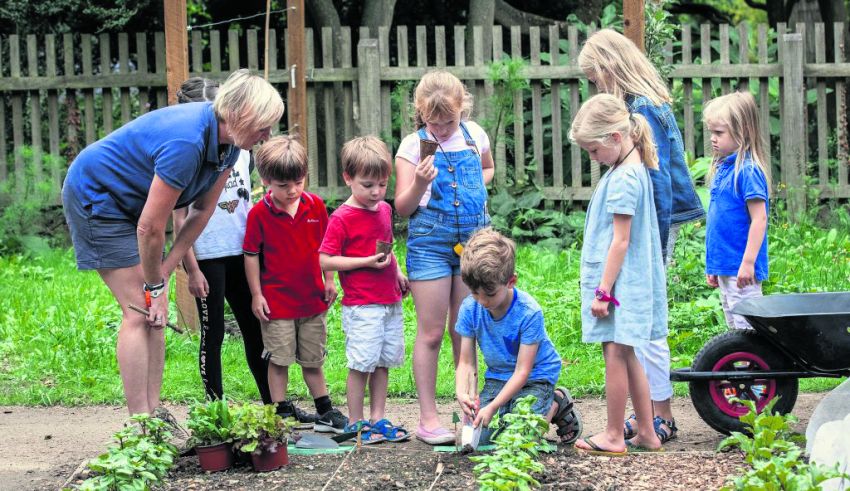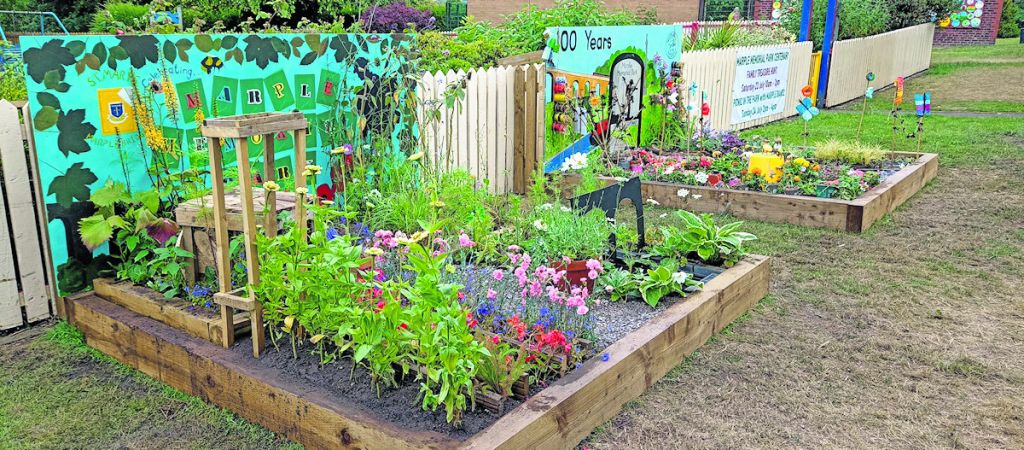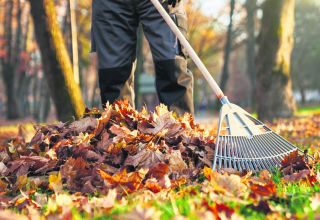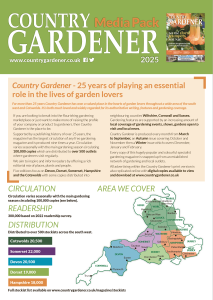
This winter the campaign to add gardening to the UK school’s curriculum is being stepped up as teachers believe it to be the perfect vehicle for hands on learning.
This winter the biggest every drive is being undertaken for horticulture to be embedded in the UK school curriculum.
The rise of gardening in schools has been quite staggering over the past decade.
It has slipped seamlessly into the primary school environment, providing a new and dynamic way for teachers to educate hungry little minds.
The campaign is nothing new-just perhaps more intense and urgent.
This winter will see a stepping up of a number or gardening organisations pressing for changes to the 2024/25 curriculum.
The Environmental Horticulture Group, the newly formed organisation representing the UK’s gardening, landscaping, arboriculture and environmental horticulture sectors is at the forefront of the drive as it comes together to relaunch the industry group with the aim of championing the sector with the government.
For the past 15 years and more there have been some serious support for the way gardening is being taught and involved in schools with the emphasis on children getting their hands dirty and enjoying the pleasure of seeing things grow at first hand.
Gardening covers so many parts of the curriculum, maths, science, art, physical exercise and very importantly, teamwork.
Teachers now believe it to be the perfect vehicle for hands on learning.
It now seems just a question of time when gardening will be added to the national curriculum which is a remarkable fact given it all started from such a low base.
School gardening in 2023 plays a huge part in children’s well-being and education. Over 1.5 million children in 90 per-cent of the UK’s primary schools are involved.
An independent survey of 402 primary school head and deputy head teachers in England forms the basis for this report, using desk research to extrapolate these figures to the UK. This shows high support for school gardening. 94 per-cent of survey participants agree that school gardening benefits either pupils’ physical health, mental well-being, social skills, behaviour, or concentration.
Despite this consensus on the benefits of gardening, schools need more help. Primary schools typically have just 33p per pupil to spend on school gardening; teachers report a need for more funding, volunteers, and materials to draw upon that link school gardening to the curriculum.
Nine in ten UK primary schools are doing some school gardening, albeit in the curriculum for only 37 per-cent. Three quarters offer school gardening as an extra-curricular activity.
The typical UK primary school has two- or three-year groups taking part, whilst 43 per-cent offer their programmes to three or more year groups. Although children across all age ranges take part, it’s mainly five to eight-year-olds that tend to be involved.
These figures mean that only around 1.5 million of the 5.5 million primary school pupils in the UK get to do school gardening.
A spokesman for the EHG said: “Children aren’t playing outside as much as previous generations, spending 17 hours each week watching television and 20 hours online.
“A report by the National Trust states the area around the home in which children are allowed to play, has declined by almost 90per-cent since the 1970s; driven by parental fears over safety .
“Being stuck indoors may be disconnecting children from the natural world. In a 2008 survey one third of children could not identify a magpie, meanwhile half could not tell a bee from a wasp.”

Three main reasons are at the core of the gardening campaign
1. It encourages proper healthy eating
Recent statistics indicate a shocking one in three children are overweight by the age of 11, with a third of children eating junk food every day; meaning it’s clear our children’s nutrition is affected by convenience food. Also, the amount of time children spend outside is dramatically decreasing, in fact – three quarters of UK children are spending less time outdoors than prison inmates due to lack of green spaces and the influence of technology.
School gardening provides children with opportunities to gain extra outdoor exercise whilst teaching them useful development skills.
Gardens containing fruit and vegetables can help to revise attitudes about foods – students are more likely to try eating vegetables they have grown themselves and to ask for them at home.
When this influence is taken back home, it can help improve their family’s shopping and meal choices.
2. It helps appreciating the environment
Gardening deepens children’s sense of connection with nature, school gardening can inspire environmental stewardship. Children can learn about water and energy cycles, the food chain, and the individual needs of different species, meaning they will have more of a desire to explore outside. Gardening can also offer insights to the long-term human impact on the natural environment. From the water shortage to the over-use of pesticides, children who engage in gardening have first-hand opportunities to observe the importance of conservation and intelligent allocation of resources.
3. Gardening brings with it a unique learning experience
Gardening activities are fantastic for helping children engage in a way that is more difficult in the classroom. It allows for surprises to arise, for example, when plants are afflicted with fungus, how the weather and seasons can impact the growth of different crops and how different insects that are enticed by different plants. These opportunities show nature is in control of our world and give students immediate and personal reasons for wanting to know the answers to pressing questions.











